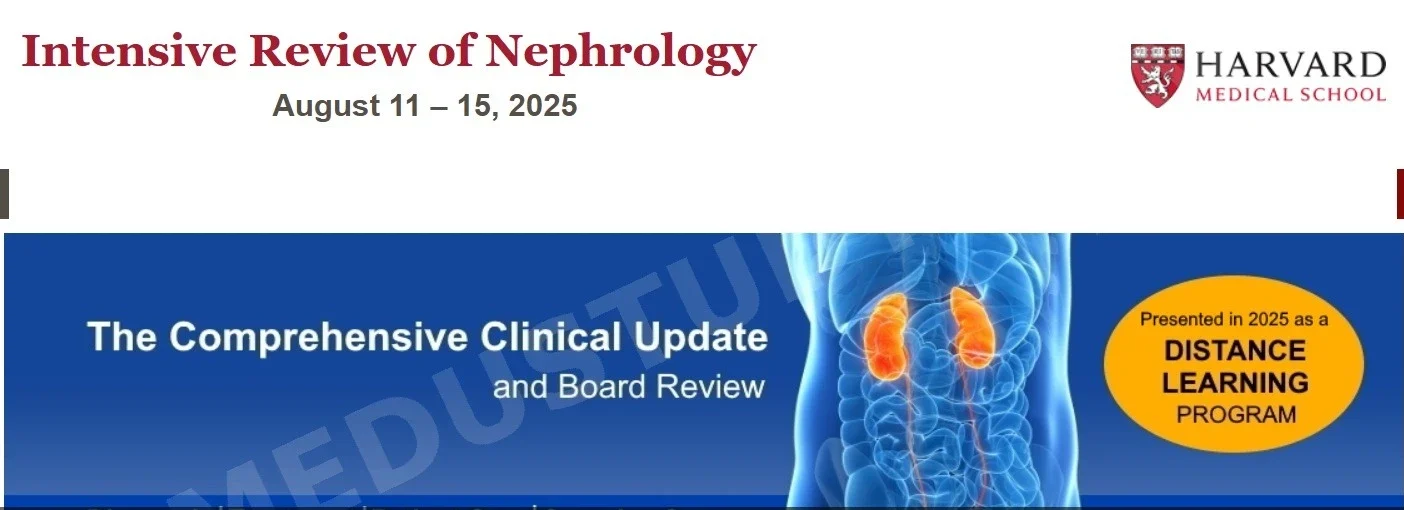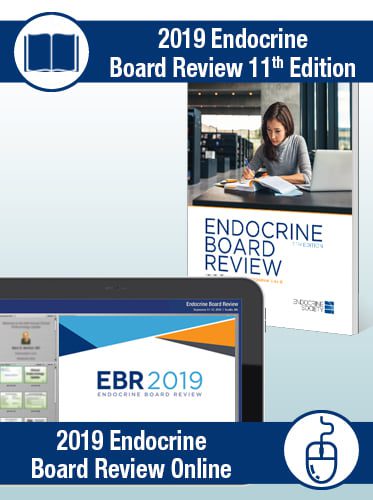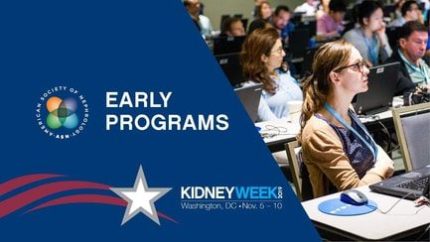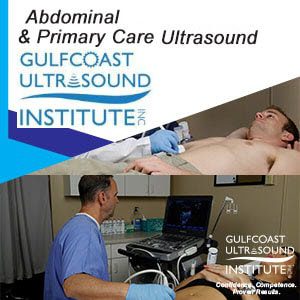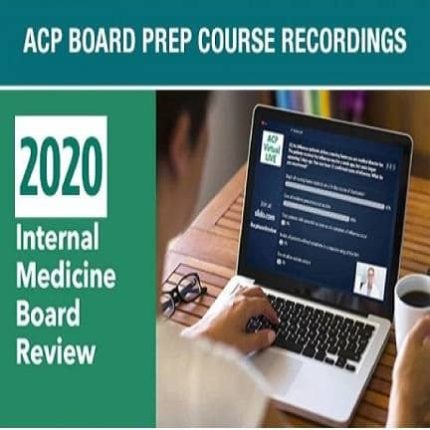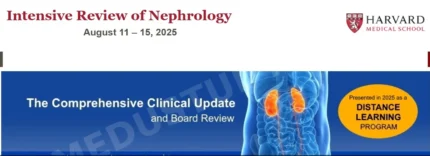Product Overview & Details for Harvard Intensive Review of Nephrology 2025
FUll course With PDFS Videos
Study Hall Videos
Live stream videos
Slides
Intensive Review of Nephrology 2025
The Comprehensive Clinical Update and Board Review
Syllabus
OVERVIEW
With over 70 interactive lectures, case discussions, board preparation sessions, and supplementary lectures, this CME program provides a comprehensive review of state-of-the-art nephrology practices offered by the clinical faculty of Harvard Medical School.
It offers accelerated learning for:
► Clinicians seeking a practical and comprehensive review that ensures they are up to date across all major areas of nephrology:
- The latest options for diagnosis: what to choose, when, and why
- Current evidence-based treatment and care management strategies to optimize patient outcomes
- Improved approaches to common and complex clinical challenges
- Navigating clinical controversies
- How to avoid medical mistakes
OUTCOMES-DRIVEN EDUCATION
Incorporating recent advances in renal medicine into day-to-day practice enables PHYSICIANS, NPs and PAs to deliver optimal patient care and improve patient outcomes. The challenge for most clinicians is that the amount of new information can be overwhelming, and determining what is relevant and important cannot always be readily ascertained.
Intensive Review of Nephrology synthesizes this information and presents it efficiently and effectively to ensure you are current with state-of-the-art practices and the best ways to apply them to the diagnosis and treatment of your patients.
Intensive Review of Nephrology: The Comprehensive Clinical Update 2025
If you are seeking a practical and comprehensive clinical review, this program ensures you are up to date across all major areas of nephrology, including:
GLOMERULONEPHRITIS
- Basic concepts of pathology and pathophysiology
- Interpretation of the urinary sediment
- The latest treatment strategies and guidelines for:
- Rapidly progressive glomerulonephritis
- Lupus nephritis
- IgA nephropathy
- Membranous nephropathy
- Minimal change disease
- C3 glomerulonephritis
CHRONIC KIDNEY DISEASE
- Epidemiology of chronic kidney disease
- Best practices in the management of CKD patients
- Current approaches to the care of patients with diabetic kidney disease
- Updated approach to geriatric nephrology
- New drug therapies for management of CKD
GENETIC KIDNEY DISEASE
- State-of-the-art approaches to genetic diseases of the kidney
- Practical guide to use of renal panel genetic testing
- Latest updates on polycystic kidney disease
ACUTE KIDNEY INJURY
- Workup and management of AKI
- Biomarkers of AKI
- Current guidelines for renal replacement therapy in the ICU including CVVH and intermittent HD
- Thrombotic microangiopathies
- Cardiorenal and hepatorenal syndromes
VASCULAR DISEASE
- Hypertension for the nephrologist
- Latest guidelines for diagnosis and management of primary and secondary hypertension
- Current approach to renovascular disease
ELECTROLYTES AND ACID-BASE
- Interpretation of acid-base cases
- Fundamentals for diagnosis and management of electrolyte disorders
END-STAGE RENAL DISEASE
- Hemodialysis updates
- Peritoneal dialysis updates
- Dialysis vascular access
- Management of anemia in CKD
- Management of mineral and bone disease in advanced CKD
TRANSPLANTATION
- State-of-the-art approach to interpret tissue typing data pre- and post-transplant
- Current guidelines on using induction and maintenance immunosuppressive therapies
- Best practices in treating acute and chronic allograft rejection
- Approach to late allograft loss
- Updated strategies and guidelines in donor and recipient evaluation
- The latest treatment strategies and guidelines of common infections post-transplant
TAILORING TREATMENT FOR SPECIAL POPULATIONS
- Cancer and the kidney
- Pregnancy and renal disease
- Pediatric nephrology for the adult nephrologist
- Mesoamerican nephropathy
- Pathophysiology and treatment of diabetic kidney disease
- Racial disparities in nephrology
Highlights of the 2025 program include:
- Genetic testing for improved diagnosis, prognosis, and selection of therapy
- Introduction to point-of-care ultrasound: fundamentals for optimal image acquisition and accurate interpretation
- Physical exam of the dialysis access
- Further expansion of the roles of SGLT2i and finerenone in diabetic and non-diabetic kidney disease
- New insights in immunology and the pathogenesis of glomerulonephritis
- Novel immunosuppressive agents for glomerulonephritis


